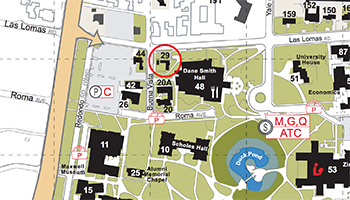Our Principles/Code of Ethics
Hallmarks of Ombuds Practice
We adhere to the organizational ombuds principles and Standards of Practice established by the International Ombuds Association. Accordingly, we serve as a confidential, neutral, informal, and independent resource for UNM employees, their co-workers, and graduate students.
Confidential
Visitors' identities and the contents of their conversations remain strictly confidential.
The only exceptions to confidentiality are when the visitor gives express, written permission to share information; in rare instances when disclosure is necessary to address an imminent risk of serious harm; or if the ombuds is compelled or required by law to make a disclosure. Ombuds Services keeps no records containing identifying information but may create or maintain generic data, not attributable to specific visitors, for use in annual reporting and other similar purposes.
Neutral
Ombuds Services promotes fair processes and does not take sides or advocate for any individual, group, department, or organization.
Informal
Ombuds Services offers a place where UNM employees, their co-workers, and graduate students can talk comfortably and privately about building communication and collaboration. This office is not a channel for reporting a claim, and Ombuds Services is not authorized to receive notice on behalf of any individual, group, department, or organization. We do not participate or testify in formal investigations or hearings. We maintain no official records and have no decision-making authority.
We listen, identify, and reframe workplace issues; support visitors as they develop a range of options; provide an informal, neutral process; and help people develop ways to move forward on their own and with co-workers.
Independent
Ombuds Services does not report to, nor is structurally affiliated with, any compliance function of the University. The office is independent from other UNM entities and reports administratively directly to the President's Office. We exercise sole discretion over whether or how to act regarding an individual’s concern, a trend, or concerns of multiple individuals over time.

